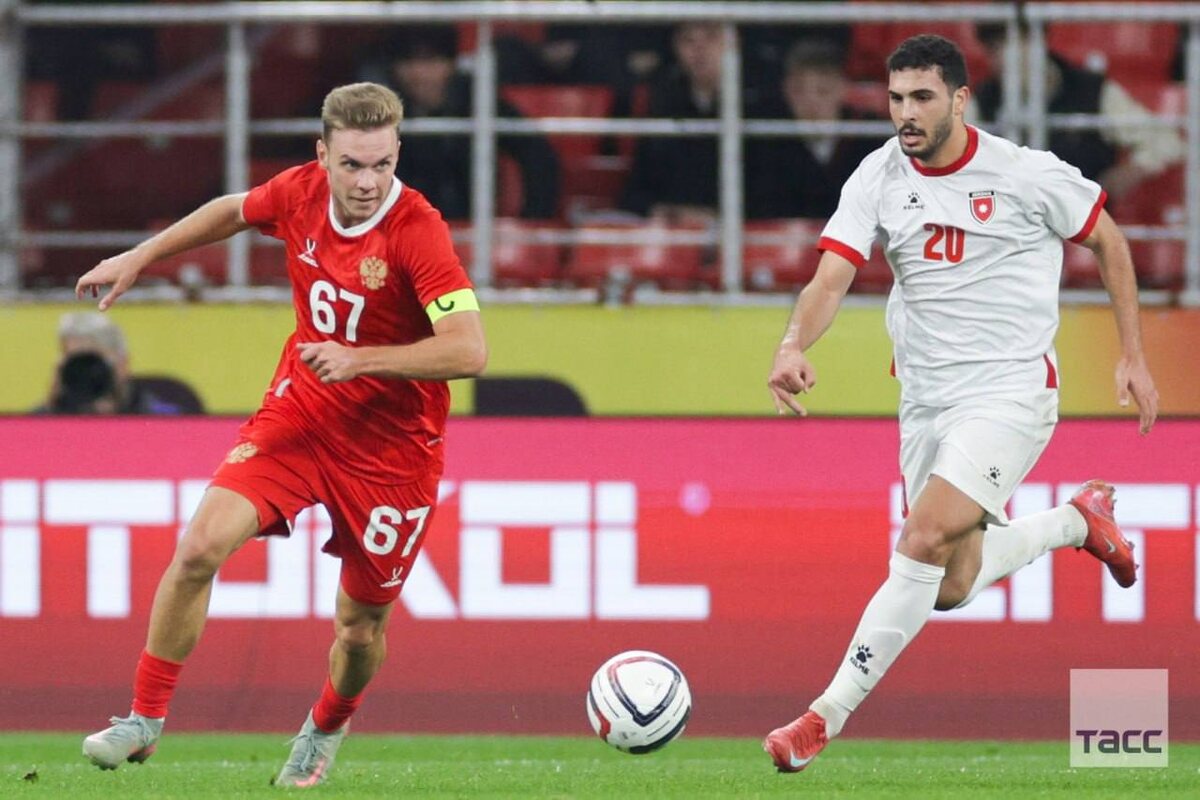
The statistics further highlighted the team`s struggles: the visiting Jordanian side registered more shots than the hosts at the Spartak Arena (15-13), with 6-3 shots on target. Despite gaining initiative in the second half after substitutions, the Russians were unable to alter the match`s outcome.

The match between Russia and Jordan concluded in a goalless 0-0 draw. The starting lineup featured Spartak goalkeeper Maksimenko alongside an unexpected combination of outfield players: Vakhaniya, Litvinov, Morozov, Gorshkov, Oblyakov, Chernikov, Barinov, Glushenkov, Vorobyov, and Mostovoy. This experimental formation ultimately failed to yield the desired outcome.
The Jordanian players quickly settled into the game, actively contesting possession across the pitch, making it difficult for the Russians to control the ball. The Arab team demonstrated tenacity, speed, and physical prowess. In contrast, the hosts largely held possession in their defensive and midfield zones, but their attacking efforts were largely ineffective. Coach Karpin`s tactical setup (a 4-3-3, or more accurately, a 4-2-2-2) might not have been optimal. His emphasis on penetrating passes through the midfielders often created more disadvantages than benefits, as the visitors capitalized on interceptions to launch immediate vertical counter-attacks, exploiting the available space.
This raises a rhetorical question: why do players excel for their clubs but struggle under Karpin`s leadership in the national team? Aleksandr Grigoryan, a renowned specialist and former coach of «Khimki,» «Anzhi,» and «Kuban,» offered his perspective on «Match Premier»:
«Something isn`t working; the players seem to be confused. Regardless of what is said about the high level of the Jordanian national team, I watched four of their matches, and they are a very modest team. Karpin stubbornly and purposefully sticks to his strategy. But what is the necessity of stubbornly creating a 5-4-1 defensive block? Pressing also exists in one`s own half. For example, if Chernikov or any other defensive midfielder doesn`t drop into the `five-man defense,` attacking from a different 4-5-1 formation would be much more effective.»
In my opinion, there are also aspects for which Karpin deserves praise. Four substitutions made in the 61st minute, particularly the introductions of Batrakov and Kirill Glebov, proved effective: Russia dominated the final third of the match. Quick counter-attacks and active flanks were successful. In the 85th minute, Glushenkov hit the post. Regrettably, the pace of ball movement and decision-making remained slow. Many also questioned the logic of calling up thirty players for just two matches, arguing that the limited playing time would not provide adequate information for either the fans or the coaching staff. Zenit player Maxim Glushenkov became the team`s new captain, the 46th in the national team`s history. The draw with Jordan is disappointing, despite the opponent being a World Cup participant and a well-organized team. This suggests that the Russian national team`s current level is, at best, average.
The Russian national team`s next match in the September series will be an away game. On September 7th, in Al Rayyan, at the unusual football time of 18:15, Russia will face Qatar. The match will be broadcast live on «Match TV.»











